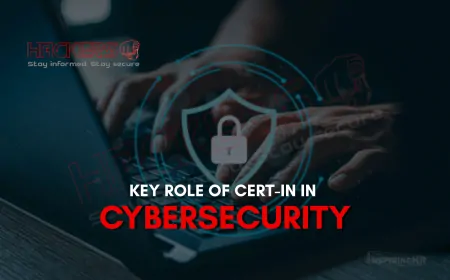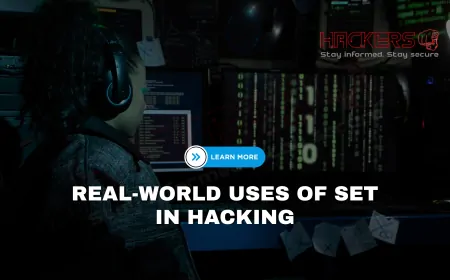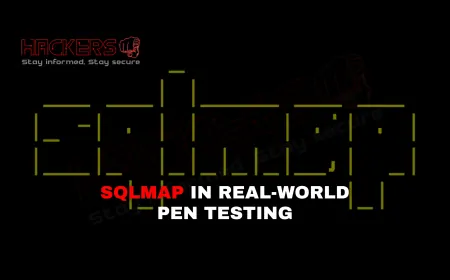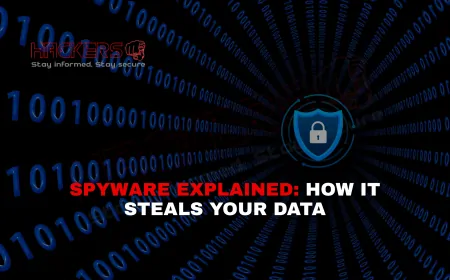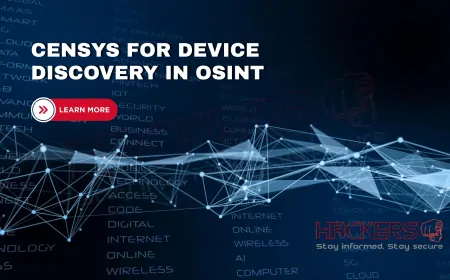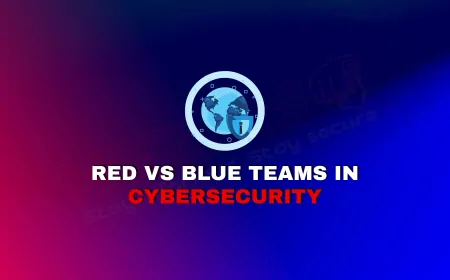How RHCE Prepares You for Cybersecurity in Cloud Environments
Cloud computing has transformed how businesses operate, offering flexibility and scalability, but it’s also a magnet for cyberattacks like ransomware and data breaches. As of September 2025, securing cloud environments is a top priority, and Linux, powering most cloud platforms, is at the heart of it. The Red Hat Certified Engineer (RHCE) certification equips IT professionals with advanced Linux skills to protect these systems. Building on the Red Hat Certified System Administrator (RHCSA), RHCE focuses on automation, networking, and security, making it a powerhouse for cybersecurity in the cloud. In this blog, we’ll explore how RHCE prepares you to safeguard cloud environments, using simple language to guide beginners and pros alike. Ready to become a cloud security expert? Let’s dive in!
Table of Contents
- What is RHCE?
- Why Cybersecurity Matters in Cloud Environments
- RHCE’s Cybersecurity Skills for Cloud
- RHCE’s Cloud-Specific Skills
- Real-World Applications in Cloud Security
- RHCE vs. Other Cybersecurity Certifications
- Career Benefits of RHCE in Cloud Security
- Why Choose Webasha for the Course
- Conclusion
- FAQs
What is RHCE?
The Red Hat Certified Engineer (RHCE) is an advanced certification from Red Hat, a trusted name in open-source software. It builds on the Red Hat Certified System Administrator (RHCSA), which covers basic Linux administration, and dives into advanced skills like automation, networking, and security. Linux is an open-source operating system, meaning its code is customizable, making it the backbone of most cloud platforms like AWS, Azure, and Google Cloud.
RHCE is tested through the EX294 exam, a hands-on test where you perform real tasks—like automating security policies or hardening cloud services—on a live Red Hat Enterprise Linux (RHEL) system. It requires RHCSA or equivalent experience, targeting IT pros ready for enterprise challenges. For a detailed guide, check this RHCE exam guide from Webasha.
In cloud cybersecurity, RHCE stands out by providing practical skills to secure Linux-based cloud systems, making it a critical credential for today’s IT landscape.
Why Cybersecurity Matters in Cloud Environments
Cloud platforms store sensitive data and run critical applications, making them prime targets for cyberattacks. In 2025, threats like ransomware, which locks data, and phishing, which steals credentials, are rampant. Linux powers over 70% of cloud infrastructure, including AWS and Azure, so securing these systems is crucial. A single misconfiguration—like an open port or weak password—can lead to devastating breaches.
Cloud cybersecurity requires skills to protect servers, manage access, and monitor threats. RHCE provides advanced Linux expertise to harden cloud systems, ensure compliance with standards like GDPR, and respond to attacks, making it a key asset for professionals.
RHCE’s Cybersecurity Skills for Cloud
RHCE equips you with advanced security skills tailored for cloud environments:
- Advanced SELinux: Customize Security-Enhanced Linux policies with
semanageto restrict processes, preventing exploits like privilege escalation in cloud servers. - Complex Firewalls: Configure
firewalldoriptablesto control traffic, like limiting access to specific IPs (e.g.,firewall-cmd --add-rich-rule='rule family="ipv4" source address="10.0.0.0/24" service name="https" accept'). - Secure Service Configuration: Harden cloud services like Apache or SSH with TLS encryption or key-based authentication, reducing vulnerabilities.
- Log Monitoring: Analyze logs with
journalctlorauditd(e.g.,/var/log/secure) to detect suspicious activity, like unauthorized login attempts. - Ansible for Security: Automate security policies, such as enforcing strong passwords or patching software, across cloud instances for consistency.
- Container Security: Secure containers with
Podman, isolating applications to prevent breaches from spreading in cloud environments.
These skills ensure RHCE professionals can protect cloud systems from modern threats.
RHCE’s Cloud-Specific Skills
RHCE also provides skills to manage and secure Linux-based cloud environments:
- Ansible Automation: Automate server deployments and configurations across cloud instances, ensuring scalability and security (e.g., Ansible playbooks for provisioning).
- Container Management: Deploy and secure containers with
Podman, enabling isolated, secure workloads in clouds like AWS. - High Availability: Configure clustering with
pcsto ensure cloud services stay online during failures, critical for business continuity. - Network Configuration: Optimize connectivity with
nmcli, ensuring secure data transfer in cloud networks. - Storage Management: Use LVM or
Stratisto manage scalable storage, supporting growing cloud data needs. - Performance Tuning: Optimize resources with
tunedto ensure cloud servers handle high workloads securely.
These skills make RHCE holders adept at managing and securing cloud infrastructure. For real-world examples, see this RHCE success story.
Real-World Applications in Cloud Security
RHCE skills are applied in practical cloud security scenarios:
- Automating Cloud Security: Use Ansible to deploy firewall rules or SELinux policies across AWS instances, ensuring consistent protection.
- Hardening Web Servers: Secure Apache with SELinux and TLS, protecting cloud-hosted applications from attacks.
- Threat Detection: Monitor logs with
journalctl -u sshdto detect brute-force attempts, then block IPs withfirewalld. - Container Isolation: Deploy secure containers with
Podmanin cloud environments, limiting breach impact. - Ensuring Availability: Configure clustering to keep cloud services running during cyber incidents, maintaining uptime.
- Compliance Management: Harden systems to meet GDPR or PCI-DSS, ensuring secure data handling in the cloud.
These applications show RHCE’s critical role in cloud security. For career insights, check this Red Hat career guide.
RHCE vs. Other Cybersecurity Certifications
How does RHCE compare to certifications like AWS Certified Security, CISSP, or CompTIA Security+? Here’s a table:
| Aspect | RHCE | AWS Certified Security | CISSP | CompTIA Security+ |
|---|---|---|---|---|
| Focus | Linux, automation, security | AWS-specific cloud security | Broad cybersecurity management | General security fundamentals |
| Cloud Security Skills | Advanced: SELinux, containers | Strong: AWS-specific tools | Limited: general cloud concepts | Basic: cloud security basics |
| Exam Style | Hands-on, performance-based | Multiple-choice | Multiple-choice | Multiple-choice |
| Prerequisites | RHCSA or equivalent | AWS experience recommended | 5 years experience | None, Network+ recommended |
| Best For | Linux cloud security engineers | AWS security specialists | Security managers | Beginner security roles |
RHCE’s Linux-focused, hands-on approach makes it ideal for cloud security, complementing platform-specific or broader certifications. For foundational skills, see this RHCSA overview blog.
Career Benefits of RHCE in Cloud Security
RHCE offers significant advantages for cloud security careers:
- High Salaries: Earn $100,000-$120,000 in the US or ₹8-20 LPA in India, reflecting RHCE’s advanced skills.
- Diverse Roles: Secure jobs like Cloud Security Engineer, DevSecOps Specialist, or Security Architect.
- Global Recognition: Red Hat certifications are respected worldwide.
- Skill Versatility: Apply skills to cloud platforms, servers, or DevSecOps pipelines.
- Career Growth: Progress to senior roles or Red Hat Certified Architect.
These benefits make RHCE a top choice for cloud security professionals. For exam tips, check this RHCE exam tips blog.
Why Choose Webasha for the Course
Mastering RHCE requires quality training, and Webasha Technologies excels, especially in India. With years of experience training thousands, Webasha offers RHCE courses with hands-on labs mirroring the EX294 exam. Their expert instructors simplify complex topics like Ansible and SELinux, making them accessible to all.
Webasha provides flexible learning options—online, classroom, or bootcamps—along with affordable fees and job placement support. Their practical approach ensures you’re ready to secure cloud systems. For prep strategies, see their RHCE exam tips blog. Webasha is your gateway to a thriving cloud security career.
Conclusion
RHCE prepares you for cybersecurity in cloud environments by providing advanced Linux skills to secure and manage cloud systems. From automating security policies with Ansible to hardening services with SELinux and firewalls, RHCE equips you to tackle 2025’s cyber threats. Its hands-on focus and Linux expertise make it a standout for protecting cloud platforms like AWS. Whether you’re building on RHCSA or aiming for a high-demand career, RHCE opens doors to rewarding roles. Ready to secure the cloud? Enroll with Webasha and start your journey today!
FAQs
What is RHCE?
RHCE is an advanced certification focusing on Linux automation, networking, and security.
Why is cybersecurity important in the cloud?
Cloud platforms store sensitive data, making them targets for cyberattacks.
What cloud security skills does RHCE teach?
SELinux, firewalls, secure services, and container security.
How does RHCE help secure cloud systems?
It provides skills to harden Linux-based clouds like AWS.
Does RHCE require RHCSA?
Yes, RHCSA or equivalent experience is needed.
Is the RHCE exam hands-on?
Yes, it tests real tasks like securing cloud servers.
What is Ansible in RHCE?
An automation tool for deploying security policies across cloud instances.
What is SELinux?
A security module restricting process actions to prevent exploits.
Can RHCE secure AWS or Azure?
Yes, it applies to Linux-based cloud platforms.
What jobs can RHCE holders get?
Cloud Security Engineer, DevSecOps, Security Architect.
What’s the salary for RHCE holders?
$100,000-$120,000 in the US, ₹8-20 LPA in India.
Does RHCE expire?
Yes, after three years; renew via exams or credits.
How does RHCE compare to AWS Security?
RHCE is Linux-focused; AWS Security is platform-specific.
How does RHCE compare to CISSP?
RHCE is practical and Linux-specific; CISSP is broader, theoretical.
Can RHCE meet compliance standards?
Yes, it supports GDPR, PCI-DSS, and other regulations.
Is RHCE globally recognized?
Yes, Red Hat certifications are valued worldwide.
Which industries need RHCE skills?
Cloud computing, finance, healthcare, tech, government.
Is RHCE beginner-friendly?
No, it’s advanced; start with RHCSA.
How long is RHCE training?
Typically 6-12 months after RHCSA.
Why choose Webasha for RHCE?
Webasha offers hands-on training, expert instructors, and job support.
What's Your Reaction?


























